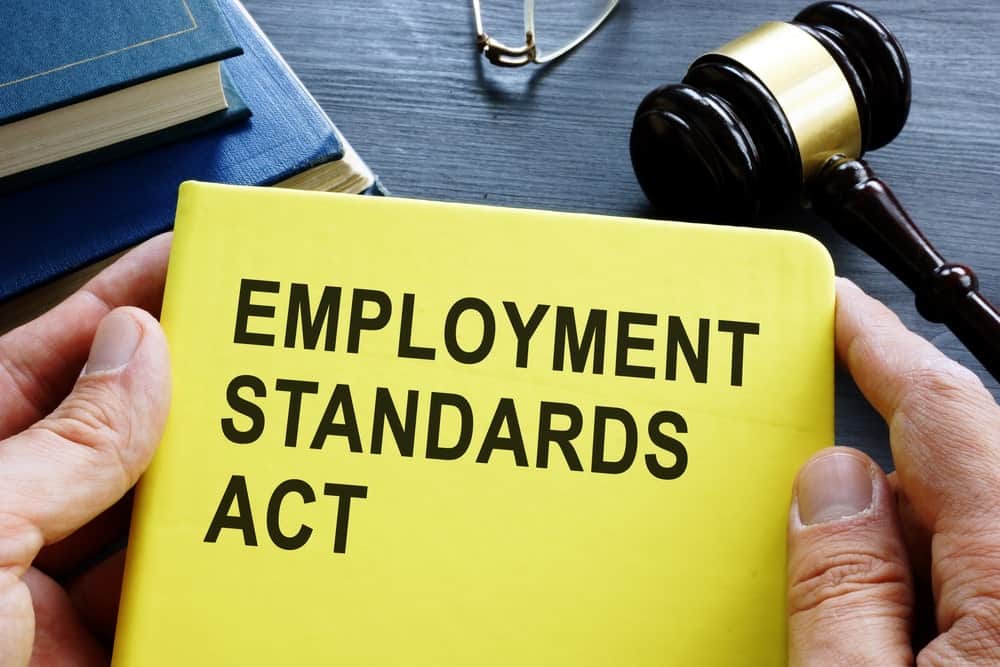
What rights do terminated employees have in BC?When do employers have a justifiable case for just cause termination?
As an employer or employee, how do you know what constitutes fair treatment during a dismissal?
BC employment standards on termination of an employee are outlined in the British Columbia Employment Standards Act. This piece of legislation outlines the main guiding principles of employment law in the province.
Within the Act, the concepts of “reasonable notice” and “just cause” occur frequently. Both employees and employers in BC need to understand what these terms mean and how they affect them if the issue of termination arises.
What is considered “reasonable notice” in British Columbia?
Despite what many people believe, an employer in BC can terminate an employee without any reason – providing certain obligations are met.
The main requirement is to provide “reasonable notice”.
Most employees in BC have the right to reasonable notice before termination by an employer. This constitutes notice (in writing) of the termination date or, if the employer wants to terminate the employee immediately, payment in lieu of notice (called “severance pay”).
Certain exceptions to this principle exist, notably for new, probationary or short-term employees who have served less than three months, seasonal workers, and unionized employees who are subject to other rules negotiated by their unions.
Otherwise, the “reasonable notice” laws outlined in the British Columbia Employment Standards Act are likely to apply to an employee.
The applicable notice periods can be summarized as follows:
- After three months of continual service: one week of notice
- After 12 months of continual service: two weeks of notice
- After three years of continual service: an additional week of notice for each additional year of service (up to a maximum of eight weeks)
Payment in lieu of notice must match the reasonable notice periods, i.e., an employee terminated immediately after 12 months of continuous service is entitled to a minimum of two weeks’ severance pay.
Note that these are minimum requirements under BC employment law. They should not be used as a definitive guide to what an employee is entitled to. Often, an employee is entitled to considerably more than these minimums under common law – usually 2-4 weeks of notice per year of service (as a general rule).
Under common law, a court can consider factors besides the length of service when assessing how much notice is “reasonable”. These factors include:
- The employee’s age and health
- The nature of the employee’s work
- The chances of finding comparable work in the marketplace
The maximum length of notice an employee can be entitled to (if no aggravating circumstances are present) is 24 months.
Does an employer need to provide “reasonable notice” for a just cause termination in BC?
If an employer believes that there is “just cause” to terminate an employee, the employee may be fired on the spot without notice.
However, if challenged in court, the employer will be responsible for establishing cause for the dismissal. This can be problematic, and that is why it is best to first seek legal advice about such dismissals.
Cause usually involves serious misconduct that breaches the employment contract. Poor performance or not living up to expectations is usually not sufficient reason without other steps being taken beforehand to demonstrate a continuing and serious performance issue (see below).
What are common reasons for dismissing an employee for “just cause” in BC?
The two most common reasons for just cause dismissal are employee misconduct and poor employee performance.
We take a closer look at each of these below.
Employee misconduct
One incident of misconduct may be sufficient to terminate an employee with cause. However, the incident must be grievous enough to repudiate the employment contract or one of its essential conditions.
This could be an act of theft or serious sexual harassment, for instance.
Misconduct does not automatically justify dismissal without notice unless it has irreparably damaged the employment relationship. The circumstances and extent of the misconduct must be carefully considered before deciding to terminate without cause and the employer’s response must be proportional to the perceived misconduct.
Sometimes, misconduct involves repeated dishonesty rather than a single incident and this may be more challenging to prove. It usually needs to be documented (with evidence) over an extended period.
Poor performance

Employers must tread carefully with performance-based just cause termination.
Even with employees who cannot follow directions, do not achieve performance objectives, are often later or absent and/or display a poor attitude in the workplace, termination must be a carefully considered process rather than a sudden decision.
To terminate an employee for cause based on job performance, the following needs to be established:
- The employee clearly understood the expectations of their position, e.g., via a written job description with specific and reasonable performance goals outlined
- The employee was given express warnings (in writing) that if performance did not improve, termination would result
- The employee was made aware (in writing) of why their performance did not meet expectations and needed to improve
- The employee was given a reasonable opportunity (with instructions, assistance, and adequate but specific time) to improve performance after the warning
- The employee failed to improve performance despite the above
- The employee’s continued employment would negatively impact the employer’s business
In other words, to avoid possible liability, the employer must provide clarity over the situation via written warnings and opportunities via training to rehabilitate poor performance before terminating an employee.
Each step should be well documented to enable proof that all of the correct procedures were followed by the employer.
The onus to prove just cause rests with the employer. The warnings must contain the essential elements described above or proving just cause for termination based on poor performance will be extremely difficult.
Need advice on employee termination in BC?
To arrange a one-on-one consultation and document review with one of our employment lawyers.

Our main hub for British Columbia is located in the heart of Vancouver. We also have a Kamloops Office for interior residents. That said, we serve the entire province of BC. We have the infrastructure to work with any of our clients virtually — even the furthest regions of British Columbia.
Call (604) 423-2646 [toll free 1-877-402-1002] to get routed to the best representative to serve you or contact us online for general inquiries.
We also have a dedicated intake form to help you get the ball rolling. Our intake team will review your specific case and advise you on the next steps to take as well as what to expect moving forward.
Our offices are generally open 8:30 a.m.—4:30 p.m., Mon—Fri.


Evan Harvey
WORKPLACE LAWYER
Evan Harvey is a lawyer practicing labour and employment law in the Vancouver office. He prides himself in a compassionate and focused approach to developing and maintaining trusting client relationships and advocating his clients’ interests in a meticulous, concise, and straight-forward manner.
PRIVACY NOTICE: Any information you provide to our office — whether your personal information or employment/employer details — will be treated as strictly confidential and will not be disclosed to your employer or to any other third party. So, please be reassured that you can talk openly to our capable Intake Paralegals worry free. Fill out an Online Inquiry or call us now, your information will be in safe and helping hands.
The Legal Review Process by Taylor Janis Workplace Law
- Taylor Janis strives for high-quality, legally verified content.
- Content is meticulously researched and reviewed by our legal writers/proofers.
- Details are sourced from trusted legal sources like the Employment Standards Code.
- Each article is edited for accuracy, clarity, and relevance.
- If you find any incorrect information or discrepancies in legal facts, we kindly ask that you contact us with a correction to ensure accuracy.


